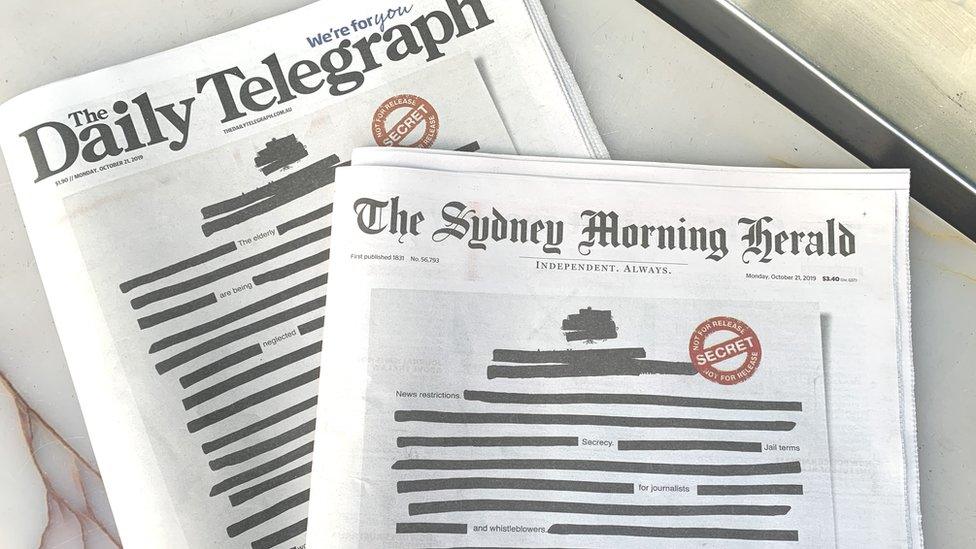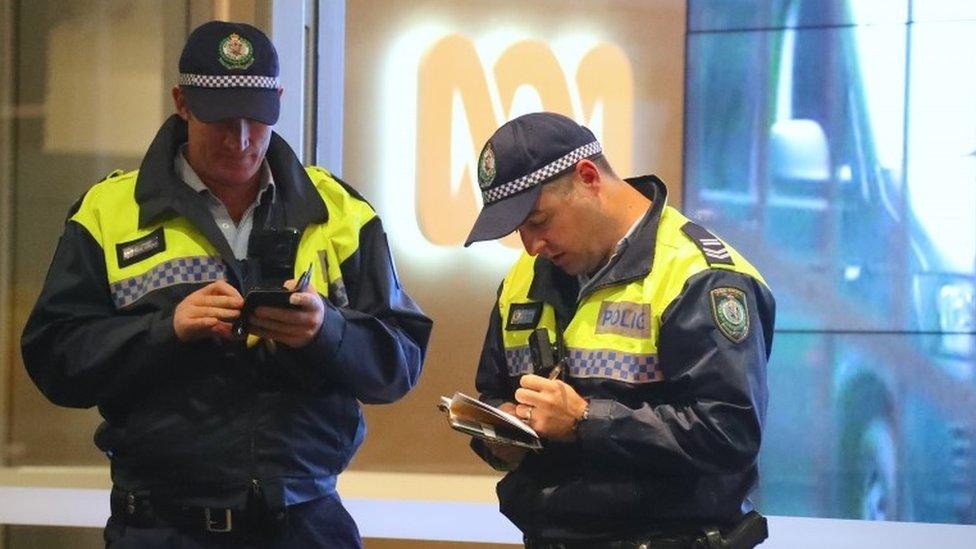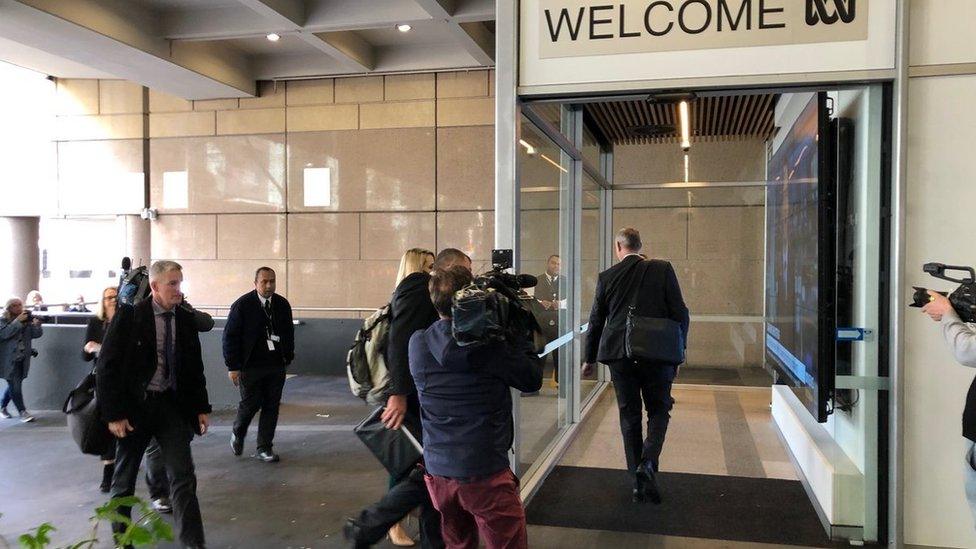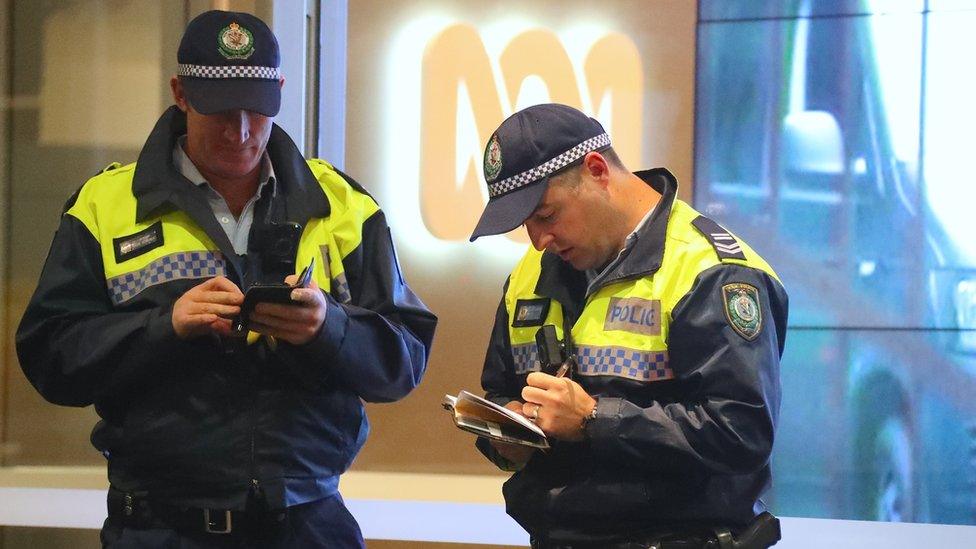ABC raid: Australian public broadcaster loses legal challenge
- Published
Police raided Australia's public broadcaster last June
Australia's national broadcaster has lost its legal challenge to controversial police raids on its Sydney newsroom last year.
In June, police searched the Australian Broadcasting Corporation (ABC) and the home of a newspaper journalist over articles which relied on leaks from government whistleblowers.
The raids sparked a public outcry and protests across the nation's media.
However, the Federal Court of Australia has ruled the searches were legal.
ABC's managing director David Anderson said the decision was "disappointing". He said the raids had been a high-profile "attempt to intimidate journalists for doing their job".
Why did police raid newsrooms?
Australian Federal Police alleged the stories and reporters at the centre of its searches had breached national security laws.
In the raid last year, they seized thousands of documents over a 2017 ABC investigation which alleged Australian armed forces had committed war crimes in Afghanistan.
Police also raided the home of News Corp reporter Annika Smethurst. In 2018, she had reported an alleged attempt by a government agency to spy on Australian citizens.
Australia's conservative government tightened its security laws in 2018 to make it a criminal offence for journalists to receive classified information from military or intelligence sources.
Canberra has previously said it backs press freedom but that "no one was above the law".
What was the ABC's challenge?
The ABC tried to challenge the legality of the police search warrant, arguing that it breached an implied constitutional right for free speech on political matters.
However, the court rejected that argument. It said "the purpose of the warrant in this case was entirely legitimate" as police had been investigating "valid" national security offences.
The court also said the few legal protections for journalists' sources were not applicable in this case.
What has been the reaction?
The industry's union, the Media, Entertainment and Arts Alliance said the case's dismissal showed "ongoing and serious threats to the public's right to know".
Mr Anderson, from the ABC, said the ruling was "a blow for public interest journalism".
He said the court decision highlighted a "serious problem" with Australia's national security laws. Critics argue they have stifled investigative reporting on government activities.

Australia's major newspapers ran "censored" front pages last year in protest of the laws
"Australia has by far the most onerous secrecy laws of any comparable western democracy - the UK, US, Canada, New Zealand," said Mr Anderson.
He pointed out that the police raids had occurred nearly three years after the stories were first published.
Police have not ruled out prosecuting Ms Smethurst, and ABC reporters Sam Clarke and Dan Oakes over their stories.
How healthy is Australia's press freedom?
Australia dropped two spots last year to rank 21st out of 177 nations in the World Press Freedom Index, which noted that the nation's investigative journalism in recent years been reduced due to "draconian legislation".
"[Australia's] laws on terrorism and national security make covering these issues almost impossible," says the index.
Media observers have previously told the BBC that journalists in Australia are enduring unprecedented political pressure.
"I'm not saying this is just about the current government but we have seen an increasing authoritarian mood creeping into the way that the media is handled by the government," said Prof Catharine Lumby from Macquarie University.
- Published5 June 2019

- Published6 June 2019

- Published6 June 2019
